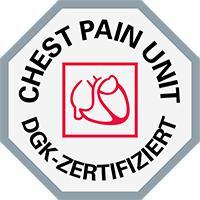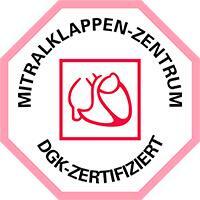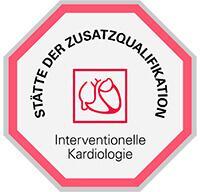Hypertension is a disease of the heart and blood vessels manifested by high blood pressure. Neurohumoral, central, and renal mechanisms of blood pressure regulation play a huge role in the pathogenetic formation of heart disease.
Hypertension can be a potential cause of fatal diseases such as stroke and heart attack. That is why it is important to know why hypertension occurs, how it is diagnosed and what medications are used in its treatment.
Content
- Overview
- What causes hypertension?
- Stages and symptoms of hypertension
- How is hypertension treated in Europe?
- How to prevent hypertension?
- Treatment in European hospitals
- The cost of treatment in Europe
Overview
Hypertension implies a persistently high blood pressure that has a chronic course with no obvious cause. This disease is also referred to in the literature as primary arterial hypertension when the diagnosis is made only after excluding all etiological factors.
The blood pressure (BP) varies considerably during life: in infants, it is 70/50 mmHg, by the end of the first year of life 95/50 mmHg, and during puberty the systolic BP increases by about 2 mmHg per year, and the diastolic BP by 0.5-1 mmHg per year. As we age, the pressure continues to rise gradually, predominantly due to systolic pressure, while diastolic BP may even decrease.
The notion of normal blood pressure is relative and every year cardiologists discuss it, but one thing is unanimous, that it should be less than 140/90 mmHg. Taking into consideration the impact of hypertension on stroke (7 times more risk compared to people with normal blood pressure), heart failure (6 times more), coronary heart disease (4 times more), according to the latest medical protocols, all patients with high blood pressure or lower blood pressure need a detailed examination with a further selection of individual therapeutic care or a prevention plan for this disease.
The development of hypertension is provoked by dysfunction of the higher vascular regulation center, as well as functional and organic changes of the heart, central nervous system, and kidneys. Hypertension with heart damage is manifested by high blood pressure, which does not return to normal values without taking hypotensive medication. If the systolic index exceeds 160 millimeters of the mercury column, and the diastolic is above 100, the diagnosis of hypertension is made. Blood pressure is measured twice at rest, the interval between measurements is 30 minutes.
There is primary arterial hypertension and secondary arterial hypertension. Hypertension may be associated with tuberculosis, kidney infection, hydronephrosis, renal artery stenosis, thyrotoxicosis, or aortic atherosclerosis. Primary hypertension refers to an independent chronic disease. If a person's regulatory system fails, high blood pressure persists.
The probability of occurrence of this heart disease in men and women over 45 years of age is almost the same. However, there are cases when hypertension is diagnosed in adolescents. With pathological damage to the cardiovascular system, atherosclerosis develops quickly and runs hard, which is dangerous with its threatening conditions for human life.
What causes hypertension?
Many factors lead to the development of chronic high blood pressure, among which there are internal and external. Internal (endogenous) factors include disorders of the endocrine system, kidneys, adrenal glands, and heart disorders. External (exogenous) factors imply stress of various origins.
In response to stress or disruption of the endocrine system, to protect the body, the brain triggers the production of certain hormones. These hormones cause vasospasm, retain water and sodium ions in the bloodstream. Blood volume increases and high blood pressure occurs. This condition is reversible. It is enough only to remove the factor that triggered the pathological process. Otherwise, the disease progresses. And when it does, vascular walls thicken, the blood becomes denser. All tissues and organs of the body suffer. High blood pressure becomes permanent, and the process becomes irreversible.
The underlying cause in each case is difficult to establish, as most people diagnosed with hypertension are exposed to several risk factors that contribute to high blood pressure.
Up to 5% of arterial hypertension is secondary (symptomatic), that is, caused by certain diseases. The most common causes of high blood pressure are renal pathology, endocrine pathology, or major vascular abnormalities.
Medical examination of patients is aimed at the exclusion of secondary causes of high blood pressure, because sometimes these causes can be eliminated or they require specific treatment. The examination also clarifies changes in organs and systems caused by arterial hypertension itself. High blood pressure leads to changes in the heart, kidneys, brain vessels, and ocular vessels. Such a diagnostic examination should be performed regularly, at least once a year.
The level of arterial hypertension and target organ damage determine the risk of cardiovascular complications. Depending on the degree of risk, treatment tactics are determined: from lifestyle changes, diet, and weight loss to the immediate initiation of drug therapy.
Stages and symptoms of hypertension
Some people have a long asymptomatic period of hypertension. The signs of the disease mostly appear during hypertensive crises, that is, a sharp spike in BP. Then patients feel a headache, dizziness, chest pain, shortness of breath and may experience panic attacks. Most people, on the other hand, feel heaviness in the back of the head, rapid fatigue, flickering in front of the eyes when they have high blood pressure. Sometimes nausea, dizziness, and nosebleeds occur, which can relieve the headache. In perennial hypertension, dyspnea, and angina, enlargement of the left ventricle, as well as visual impairment and kidney dysfunction are possible. Without the treatment and secondary prevention, the disease progresses.
Depending on the lesion of the target organs, a distinction is made between stages of high blood pressure persistence.
As a rule, but not necessarily, the first stage of hypertension is characterized by a mild and unstable increase in blood pressure without affecting the target organs. However, it is quite possible to have both a crisis and a completely asymptomatic course of the disease. In addition to high blood pressure, the patient may be bothered by:
- Headaches.
- Decreased performance.
- Tendency to fluid retention.
- Rapid fatigue.
The second stage is characterized by the appearance of signs of lesions of organs such as the heart, kidneys, brain, and eyes, as well as blood vessels, which may be accompanied by the appearance of new symptoms and complaints such as:
- Pain in the "heart area".
- Dizziness.
- Visual impairment.
- Appearance of edema.
- Memory impairment.
- Dyspnea on exertion.
The third stage is referred to as complicated hypertension. The main sign of the course of the disease at this stage is severe lesions of the target organs with thrombosis, including heart attacks and strokes, accompanied by the following signs:
- Tremors of the hands.
- Noise in the head or the ears.
- Significant memory impairment.
- Nausea and vomiting.
- Persistent visual impairment.
- Various cardiac abnormalities.
Most of these symptoms are persistent and usually progressive.
How is hypertension treated in Europe?
Why is it necessary to monitor your blood pressure and if you find a consistently high level, you should strive to bring it back to normal? Because the longer vessels are under high pressure, the faster irreversible changes occur in their walls. The walls of the arteries thicken and lose elasticity, and the lumen of the vessel significantly decreases. In hypertension, all vessels are subjected to such changes. There is a "hypertensive heart", "hypertensive kidney", hypertensive angiopathy of retinal vessels, and other similar manifestations of the heart disease.
The treatment of hypertension must be comprehensive, individually tailored, and aimed at normalizing blood pressure and constantly maintaining it at an optimal level. Medical care for hypertension is an extremely important part of the treatment complex, and especially in the early stages of the disease.
The disease requires a careful selection of drug therapy, which is prescribed for life. Medications of several groups are used. Ready-made treatment regimens are adapted for each patient, titrating the dose and the frequency of intake. It is optimal to select medications under the supervision of a physician in a hospital so that the doctor has the opportunity to evaluate the effectiveness and good tolerability of the therapy prescribed.
An appropriate treatment regimen is considered to be one in which the patient feels well, and his blood pressure is within the age norm. For that, the patient undergoes a thorough examination, which will exclude symptomatic hypertension caused by some other disease.
And again, it is impossible to completely get rid of hypertension, and the drugs have to be taken in most cases for life under regular BP control. There are several groups of drugs used for hypertension treatment. These include:
- ACE inhibitors.
- Central alpha-adrenoblockers.
- Alpha-2 agonists.
- Angiotensin receptor antagonists.
- Vasodilators.
- Aldosterone antagonists.
- Renin-inhibitors.
Monotherapy, i.e. treatment with a single drug, is used very rarely, and such cases only include the initial stages of the disease. A therapy regimen most often includes implementing 2 or 3 drugs from different groups into therapy. This allows reducing the dosage of each of them in the therapeutic scheme and increasing the overall effectiveness of their action.
Of no small importance is adherence to a healthy lifestyle. It is proven that giving up bad habits, rational body weight control, and diet can reduce the degree of hypertension.
How to prevent hypertension?
Simple and effective measures of preventative care aimed at changing lifestyles should be recommended for people at risk of developing arterial hypertension. Such measures include:
- Normalizing body weight under the supervision of health providers.
- Daily exercise for 30-60 minutes. Weight workouts are undesirable, especially with breath-holding or pushing, which may cause a rise in blood pressure.
- Decreasing the salt intake. It involves reducing the salt contained in cooking or excluding foods with high salt content (canned foods, smoked products, sausages, breaded meat).
- Limiting alcohol intake and quitting smoking. Possible undesirable interaction of alcohol with medications should additionally be taken into consideration.
In regards to diet, it has been noticed that among vegetarians, hypertension is detected less frequently. Besides, they tend to have healthier hearts. They eat a lot of fruits and vegetables (meaning plant fiber), which are rich in minerals that are good for the overall health condition. These are primarily potassium, but also magnesium and calcium. Since vegetarians do not eat meat and other animal products, they get less saturated fats and cholesterol amounts in their bodies.
The DASH diet is a specially designed dietary program for hypertension, similar to vegetarianism, but with meat in the diet. This diet eliminates the consumption of foods that contribute to the heart condition. If you follow the diet strictly for several months and then have a blood test for cholesterol, you will see that your total cholesterol and LDL, or "bad" cholesterol, are lowered.
Hypertension is much easier to prevent than to treat, so prevention is necessary, even if the disease has not yet manifested itself. It is especially important to follow doctor's recommendations for people with a presence of risk factors. It is necessary to have annual medical examinations by a cardiologist or a general practitioner.
Treatment in European hospitals
One of the most popular areas of medical tourism to Europe is the treatment of hypertension. In European hospitals, high blood pressure is treated using the most advanced methods. Since hypertension can lead to severe complications that affect many organs, including the heart, kidneys, brain, and eyes, physicians recommend not waiting until the pathology transitions to the critical stage, and start treatment as soon as possible. Its success depends directly on how accurately doctors can determine the cause of hypertension occurrence, so the European hospitals provide a high-precision examination of all patients arriving with this problem. During the initial examination, the cause of hypertension, its stage and concomitant diseases, and pathological conditions are determined. A group of specialists of different profiles takes part in making up a therapeutic plan and in the following treatment. Due to the efforts of doctors working in the European hospitals, it is possible to achieve a stable normalization of blood pressure levels, and prevent severe complications in the form of aneurysms, strokes, heart, and kidney failure.
The 5 best-reviewed European hospitals for the treatment of hypertension are:
- University Hospital Frankfurt am Main, Germany.
- Catholic Clinic Koblenz-Montabaur, Germany.
- Academic Hospital Brothers of Mercy Munich, Germany.
- Bundeswehr Academic Hospital Berlin, Germany.
- Gaziosmanpasa Hospital of Yeniyuzyil University, Turkey.
You can get specific information about the mentioned hospitals by visiting the hospital section of the Booking Health website. For the personalized selection of European hospitals suitable for the specifics of your diagnosis, leave a request on the Booking Health website.
The cost of treatment in Europe
Those who are going for treatment in European hospitals are usually told an approximate cost of treatment even during the initial consultation (provided that they submit an application online and send copies of the available medical documents). The final price is known when the doctors at the clinic appoint a therapeutic program after the examination, and patients get to know the prices of medications and procedures it will include.
Even though it may seem that treatment in Europe is overpriced, you have to remember that the quality of medical services provided in European hospitals is extremely high, and the cost of treatment does not even fully reflect the fact.
For your convenience, Booking Health draws up a preliminary cost of treatment for your clinical case, so that you can choose the most suitable treatment options for you.
To know any additional information about the prices for treatment procedures for hypertension, fill in the request form on the Booking Health website.
Authors: Dr. Vadim Zhiliuk, Dr. Sergey Pashchenko


















